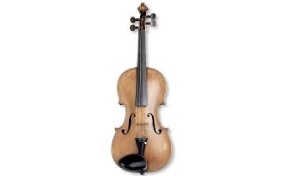The strings are crucial in a violin. A good set of violin strings can enhance your performance in terms of tone and projection. Likewise, if you want to improve your musical experience, having the right strings is the first step. In this guide, we’ll share how you can choose the perfect set of violin strings.
Understanding Violin Strings
Before choosing the perfect violin strings for your instrument, learning about them is important. One thing you should know about strings is that they can be made of different materials and components.
For instance, there are strings made up of steel, synthetic core, and gut. Each string has components, namely the core, windings, and coatings. The core is responsible for producing sound. Winding is the string’s additional mass, tonal characteristics, and stability. Lastly, the coating is the outer protective part of the strings. Each type of string differs in components. Take a look at the following.
Steel strings are made up of solid steel core or wire, have metallic winding, and have nickel, silver, or other synthetic coating materials.
Synthetic core strings can be made of synthetic materials like perlon, composite fibers, or a few more synthetic polymers, have thin metal or synthetic core as winding, and include nickel, silver, or other synthetic coating materials.
The gut strings core is made up of the sheep’s intestines, has silver or other metal for winding, and has no coating as they’re left to their natural state.
These characteristics of strings can impact the violin in terms of.
Tonal qualities
The materials and construction of the strings greatly affect the warmth, brightness, depth, and richness of the violin’s sound. Steel strings have a bright sound, synthetic core strings have a balanced tone, and gut produces a warm sound.
Projection and volume
In terms of projection and volume, the string’s gauge and tension affect it Louder and more powerful projection results from increased tension. But if the strings have lower tension, they may not be that loud, but they can offer more responsiveness when playing.
Responsiveness and playability
Responsiveness and playability are all about how easy it is to execute passages and articulations using that particular string type. If you’re a beginner, choose strings that are easy to play, like a synthetic core string.
Study your playing style, technique, and desired sound
You can choose the perfect set of strings if you know your playing style, technique, and desired sound. For instance, what genre do you want to play? Do you like jazz, classical, rock, or folk?
Regarding your playing style and technique, you can consider your skill level. Some instruments require a particular level of technical proficiency, so ensure you choose the right one fitted to your skills.
Taking Care of Violin Strings
Proper maintenance is crucial in keeping its playability and extending the lifespan of your strings. Here’s how you can take care of your instrument.
Clean your violin strings after playing using a clean microfiber cloth.
Wash and dry your hands before touching your violin.
You may use a lubricant or string cleaner designed for violins.
If you’re not using your violin, loosen the strings.
Always keep your violin in a case stored in the right temperature and humidity.
Avoid getting your oily hands on your strings.
Be quick to replace old or worn-out strings.
Seek Expert Advice
Seeking expert advice is the best approach or could be your last resort when choosing a set of violin strings. But who are these professionals? They could be a music teacher, an experienced violinist, a luthier, or an instrument technician. Remember to ask specific questions and give information about your violin and playing habits. This way, they can give you personalized advice or recommendations when choosing strings.
Conclusion
Selecting the perfect set of strings for your violin can be tricky. But if you know exactly the sound you want to produce, the genre you want to play, the tonal quality you want to hear, and your skill level, you’ll have an easy time narrowing down your options. If you’re still unsure about your decision, ask an expert for recommendations. Don’t forget that in selecting violin strings, it should depend on your overall musical experience and skills.




